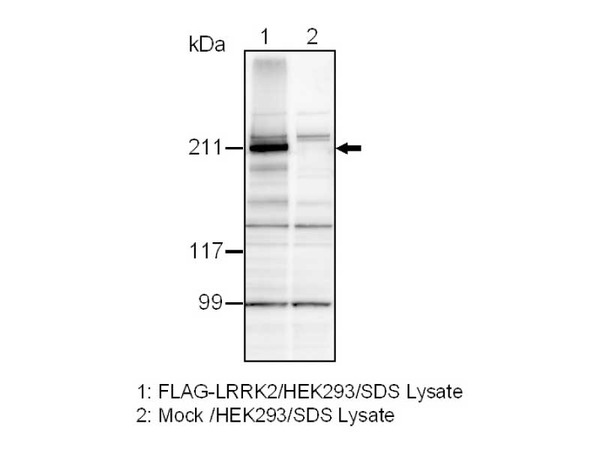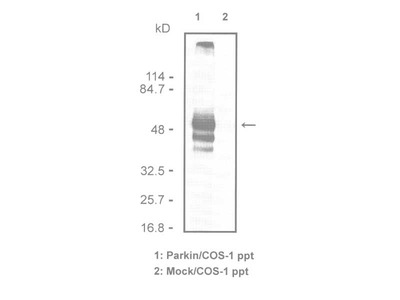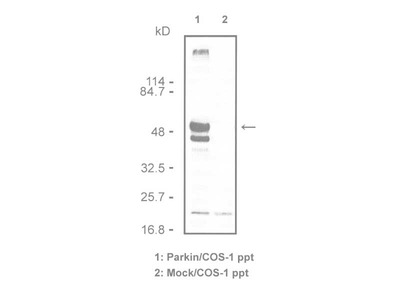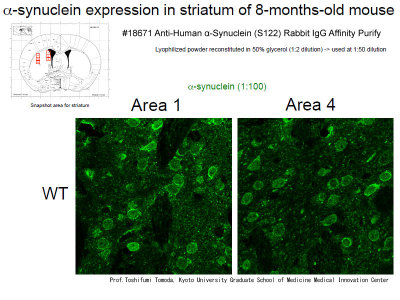- HOME >
- For Researchers >
- Product Search >
- Search Result >
- #28019 Anti-Human LRRK2 Rabbit IgG Affinity Purify
Product Search
#28019 Anti-Human LRRK2 Rabbit IgG Affinity Purify
- Intended Use:
- Research reagents
- Application:
- WB
- Package Size1:
- 100 μg
- Package Size2:
- 10 μg
- Note on Application Abbreviations
- WB:Western Blotting
※ The product indicated as "Research reagents" in the column Intended Use cannot be used
for diagnostic nor any medical purpose.
※ The datasheet listed on this page is sample only. Please refer to the datasheet
enclosed in the product purchased before use.
Product Overview
Product Overview
| Product Code | 28019 |
|---|---|
| Product Name | Anti-Human LRRK2 Rabbit IgG Affinity Purify |
| Intended Use | Research reagents |
| Application | WB |
| Species | Human |
| Immunizing antigen | Synthetic peptide of the C terminal part of Human LRRK2 (HIEVRKELAEKMRRTSVE) |
| Purification Method | Purified with antigen peptide |
| Package Form | Lyophilized product from 1% BSA in PBS containing 0.05% NaN3 |
| Storage Condition | 2 - 8℃ |
| Poisonous and Deleterious Substances | Applicable |
| Cartagena | Not Applicable |
| Package Size 1 | 100 μg |
| Package Size 2 | 10 μg |
| Remarks1 | This product is not available for sale in Germany, France, UK and Australia due to third party's right. The commercial use of products without our permission is prohibited. Please make sure to contact us and obtain permission. |
Product Description
Product Description
Parkinson’s disease is one of the most common neurodegenerative disease and characterized by progressive loss of dopaminergic neurons. Leucine-rich repeat kinase 2 (LRRK2) is one of the responsible gene of autosomal dominant Parkinson’s disease. LRRK2 gene codes about 280 kDa protein with 2,527 amino-acid residues and has Leucine-rich repeats, Roc (Ras of complex proteins), COR (C-terminal of Roc), MAPKKK (mitogen-activated protein kinase kinase kinase) and WD40 domains. In recent studies, it has been reported that LRRK2 protein has a kinase activity and the activity increases by a mutation of LRRK2 gene. And the increase of kinase activity has been shown to induce neurologic toxicity. However, there are many unclear points about functions of LRRK2 protein, and its role in pathogenic mechanism of Parkinson’s disease is still unknown.
References
References
Note: Retrieve by PMID number in displayed by abstract: http://www.ncbi.nlm.nih.gov
























